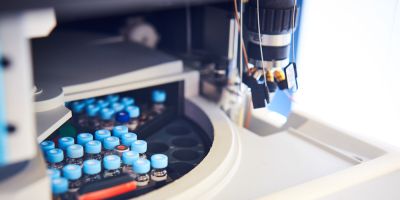Leeds and Merck partner in £3m EPSRC project to create AR/VR devices of the future

The University of Leeds has been awarded a major research grant to tackle key challenges in the development of next-generation immersive technologies.
The £3 million project, part of the UK Research and Innovation (UKRI) Prosperity Partnerships scheme, includes £1.6 million in funding from the Engineering and Physical Sciences Research Council (EPSRC), with the remaining investment from Merck Electronics KGaA and the University. Over the course of four years, the team will explore new materials and optical components to make augmented reality (AR) and virtual reality (VR) systems more compact, affordable, and accessible.
The project is one of 23 new Prosperity Partnerships announced by UKRI, which together represent £41 million in EPSRC funding and a total investment of £97 million from industry and academic partners across the UK. These collaborations aim to address pressing industrial challenges in various sectors, including artificial intelligence and drug manufacturing.
At Leeds, the research will be led by Dr Mamatha Nagaraj and brings together a multidisciplinary team of experts, including Professor Helen Gleeson (Physics), Professor Gordon Love (Computer Science), Dr Richard Mandle (Physics and Chemistry), and Dr Thomas Raistrick (Physics). Their work will focus on reducing barriers to the adoption of immersive technologies, such as motion sickness, high cost, and limited usability, to create devices as unobtrusive as regular glasses.
Dr Nagaraj said: “We are very pleased about this outcome and are excited to work with Merck on this ambitious programme. Immersive technologies are a rapidly growing industry, transforming the way we perceive the world and process information. This partnership celebrates our successful track record of working with global industrial partners and multidisciplinary expertise in soft materials at Leeds.”
Professor Love added: “It’s great to see three different Schools across the Faculty collaborating on this interdisciplinary grant, which underlines how these immersive technologies require a whole range of science, from materials and optics to human studies.”
The Leeds team has a longstanding relationship with Merck, having collaborated on multiple co-funded PhD and postdoctoral projects, including a recently completed £1 million effort focused on digital optics.




